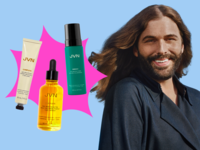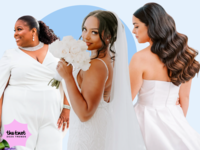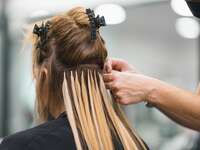Wedding Planning Could Be Making Your Hair Fall Out
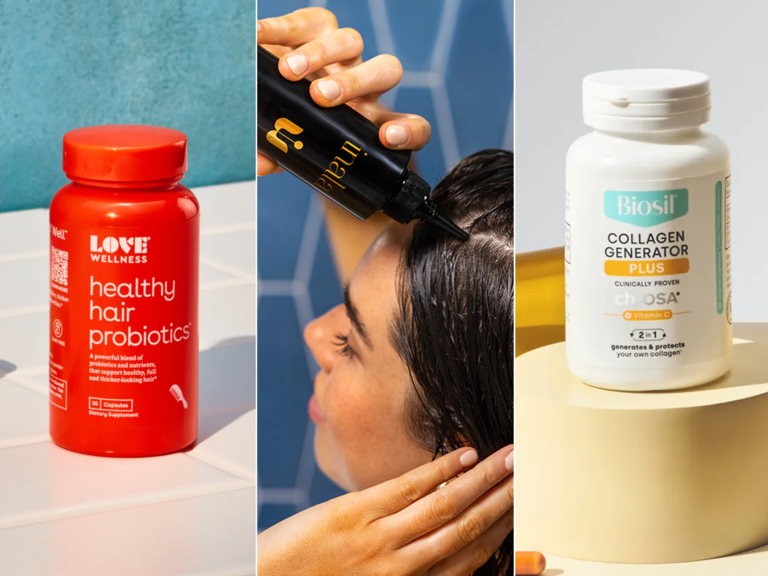
Picture this: you're washing your hair in the shower and a big clump comes out in your hand (like, bigger than usual). Sound familiar? If it does, you're not alone. High levels of stress can trigger hair loss, and as we all know, wedding planning can be a stressful time.
While hair loss is a complex issue, it's a common ailment among to-be-weds due to the emotionally demanding wedding preparation process. If you are personally experiencing excessive shedding, start managing your stress levels and any lifestyle changes you've made in the lead up to your nuptials. Also, don't fret about how thinning strands will affect your wedding day look. With some proactive steps and remedies, you can slow down stress-related loss and regain healthier, fuller-looking hair before the big day.
We've tapped three hair and scalp experts, including certified trichologist and scalp expert Shab Caspara, and the co-hosts of Beauty Curious Pod: celebrity esthetician Ian Michael Crumm, and board-certified dermatologist Dr. Elyse Love. The trio is breaking and providing a variety of effective methods, notable ingredients and remedies to maximize growth and help you reach your hair goals.
In this article:
Can Wedding Stress Cause Hair Loss?
The overwhelming process of planning your nuptials can result in elevated stress levels, and potentially noticeable sudden hair loss hair loss. However, wedding planning is not the sole cause of shedding strands. Losing a significant amount of hair can also be the effect of various other factors, including hindered sleep patterns, anxiety, hormonal changes, altered eating habits and a lack of physical health.
Hair loss could also be triggered by "a very stressful emotional or physical event—this can include a wedding, childbirth, death of a loved one, end of a major relationship, sickness and/or surgery" details Dr. Love. This condition is called telogen effluvium and it causes thinning hair, usually around the top of your head. These lifestyle disruptions can "send the body into shock and cause it to shut down the least important systems, including hair growth…stress causes hair to prematurely get pushed into the resting phase which can last up to three months before the hair actually sheds" explains Caspara.
Regardless of the cause, stress induced hair loss can show up differently for each person. Some may notice sudden patchy hair loss or increased shedding while detangling or washing their tresses. Also, some people experience visible hair loss immediately or even "three to four months after a very stressful emotional or physical event" explains Dr. Love. "This type of hair loss tends to be diffuse (shedding from all over) and can be very severe and abrupt." Regardless of the timing, Dr. Love advises to visit your dermatologist to help confirm the underlying causes and recommend appropriate treatments.
Top Hair Loss Remedies
The good news is that thinning hair, especially when caused by high-stress levels, can be reversed by improving your mental and physical health. With the right lifestyle changes, "hair loss tends to self-resolve completely in three to four months and hair density tends to return to normal within six months" details Dr. Love.
Manage Your Stress to Stop Stress-Related Hair Loss
Whether your stress is long-term or chronic, getting it under control can play a major role in regenerating your strands. To start, identify the root cause of what's giving you anxiety. If you're feeling overwhelmed by the wedding planning process, it's time to ask your friends and family for help. Coping with the pressure to have the 'perfect' wedding or take on more than you can handle, can make the lead up to the big day incredibly taxing.
It's also important to weave some daily stress-reduction techniques into your daily life. Consistent exercise is incredibly important for reducing stress, regulating hormones, and raising serotonin levels. Sweating it out regularly boosts blood flow to your scalp, which delivers oxygen and nutrients to your hair follicles, to ultimately boost growth.
To decrease overall anxiety and improve your sleep quality, "practice stress-reduction techniques like mindfulness, meditation, yoga or deep breathing exercises" instructs Crumm. He also suggests scheduling in some feel-good treatments like massages and facials to help relax the body.
Eat a Nutritious Diet That Stops Excess Shedding
For optimal regrowth, it is essential to maintain a balanced diet with an abundance of nutrients and prioritize getting enough hydration. "Your hair is a marker of your health. Strong and healthy hair requires a full amino acid profile found in animal protein, essential nutrients such as zinc, magnesium, vitamin A, iron and B vitamins ", says Caspara.
Therefore, aim for a diet filled with high-nutritional foods, including dark leafy greens, that contains plenty of fiber, antioxidants, protein and healthy fats. Any food loaded in B vitamins, which are known to improve the body's ability to handle stress and lessen hair loss, is particularly recommended. Drinking at least 64 oz. of water daily is also crucial, as dehydration can contribute to excess shedding, a dry scalp and brittle, dull hair.
Be wary of wedding crash diets, which "can starve your hair follicle of nutrients, causing the hair to grow-in finer and thinner" explains Caspara. As an alternative way to slim down, avoid eating processed food or meals filled with alcohol or sugar. Manage cravings, by filling your fridge with mineral and vitamin-rich food and keeping healthy snacks on hand. The result of a well-balanced, nutritious diet will amp up shine and density, improve scalp health, reduce thinning, and boost collagen stimulation.
Consider Supplements That Support Hair Regrowth
Slow growth could be caused by vitamin and mineral deficiencies, so opt for well-made supplements that will replenish and revive your tresses. Specifically, look for products that are potent in ingredients like biotin, collagen and keratin, which play a major role in maintaining fuller hair, luminous skin and stronger nails. It's also important to be tested for vitamin and mineral deficiencies, especially vitamin D, iron and zinc, which can also contribute to hair loss. Our list of supplements are clinically-effective and top-rated by customers for visibly thicker, longer and more resilient hair.
Shop Our Favorites
Nutrafol Women Hair Growth Nutraceutical
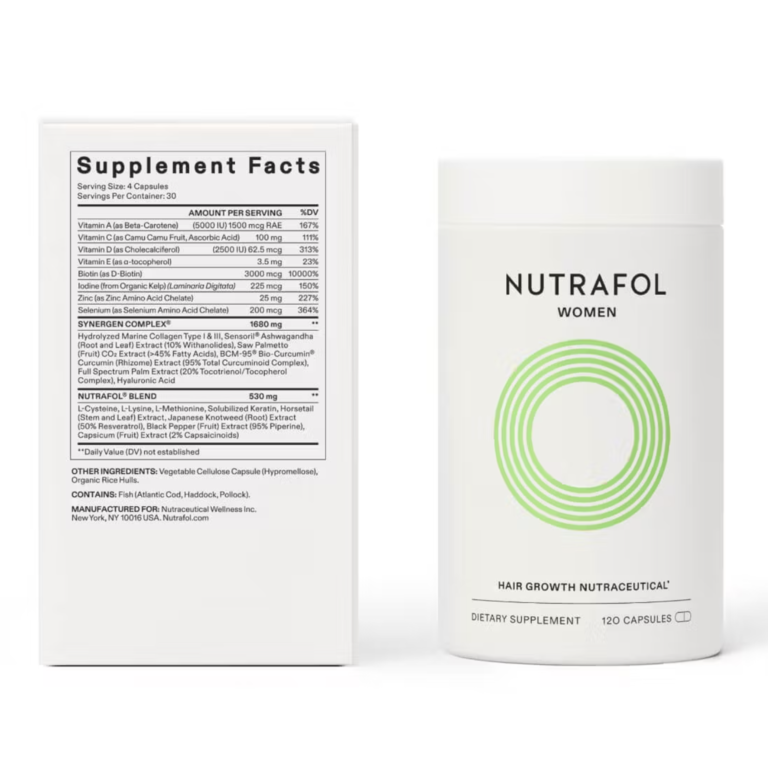
As the number one dermatologist-recommended hair growth supplement, this award-winning formula is a blend of scientifically-backed ingredients, including marine collagen peptides and keratin, that target the root causes of hair health for maximum efficacy.
Love Wellness Healthy Hair Probiotics
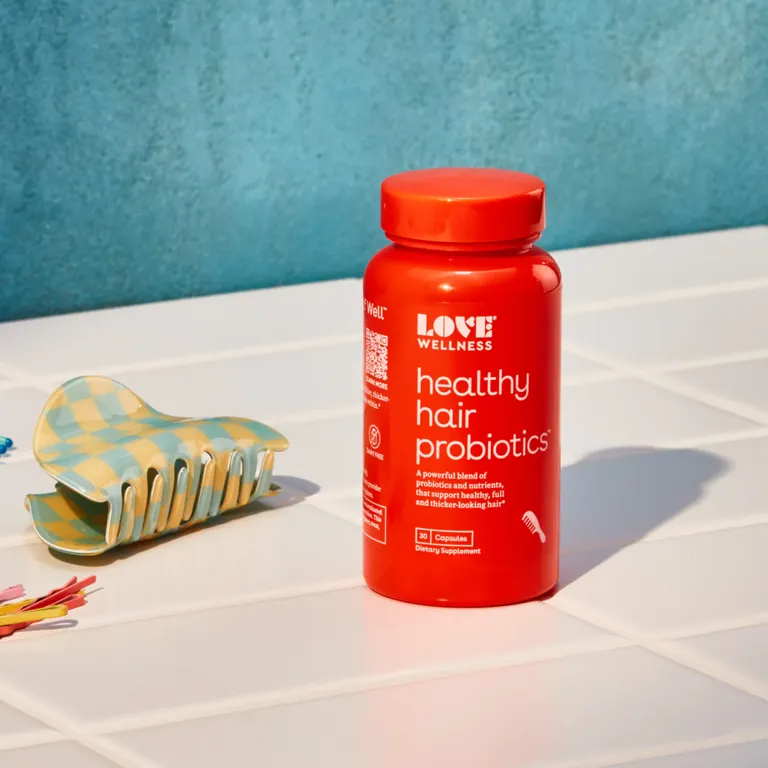
With nearly 500 5-star reviews, this probiotic reduces hair shedding and is incredibly effective thanks to ingredients like AnaGain™ Nu, a clinically-tested protein that stimulates the hair growth cycle and vitamins B12 and B6, which supports the gut-scalp connection.
Naomi OMI Well Beauty Hair Nutrition
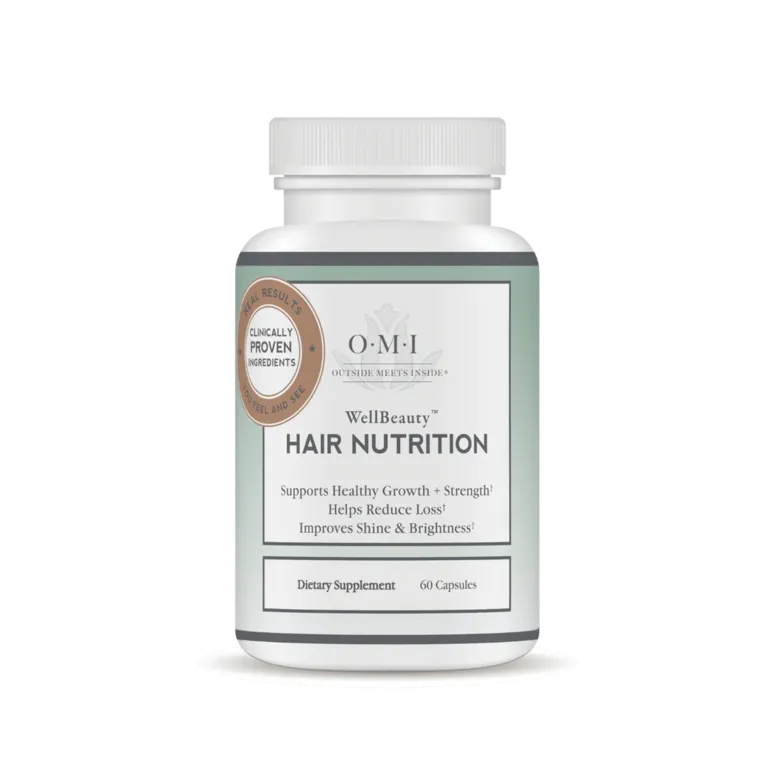
Using a patented Kerafol™ hair anchoring technology, this supplement improves the overall strength, structure, shine and brightness of strands, resulting in an average of 8x increase in hair growth after just 90-days.
Biosil Beauty Collagen Generator Plus
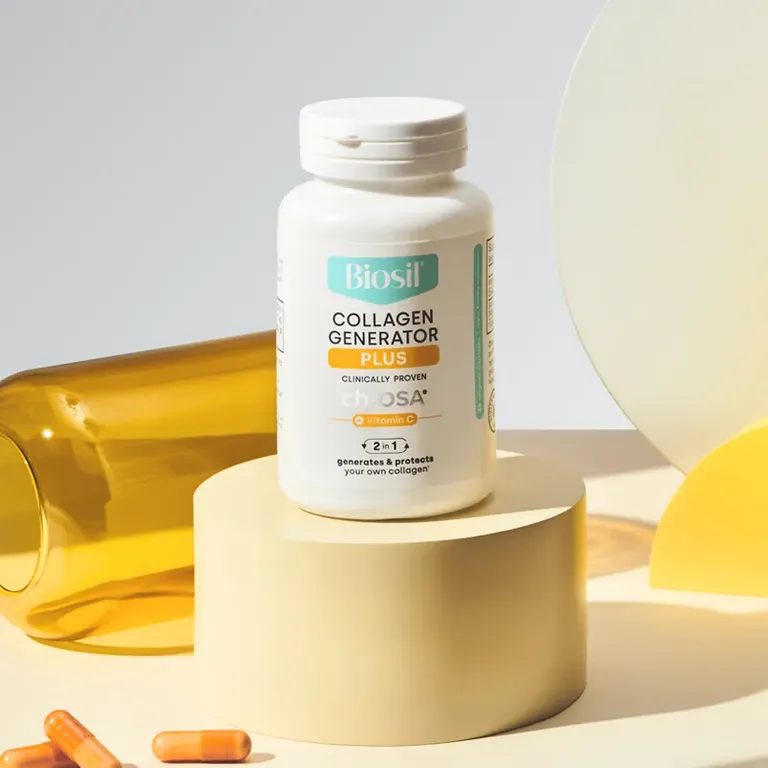
Loaded with Vitamin C and ch-OSA, a patented effective compound, this supplement activates your body's natural ability to protect and generate its own collagen, keratin and elastin.
Use Topical Products That Strengthen Your Hair
Topical products formulated with performance-driven ingredients and solutions can treat thinner hair, starting at the root (your scalp). Neglecting your scalp health by ignoring build up caused by excess oils, environmental contaminants and styling products, will make regrowth almost impossible. To treat, try a growth-stimulating scalp serum, exfoliating shampoo or mask, that will boost blood flow and stimulate hair follicles to work overtime. Also, consider filtering the water that you cleanse your hair with to remove harsh minerals, like chlorine, which dull and dry out your hair. Next, focus on hydrating the hair shaft using rich oils and leave-in conditioners. These products will hydrate your strands to prevent further breakage, whether you are hair slugging overnight or just doing a quick treatment pre-wash.
Shop Our Favorites
Actsyl-3 Hair Growth Serum

Maximize hair growth, thickness and overall strength, using this non-greasy formula that is loaded with potent lab-tested ingredients to combat the main factors that cause hair thinning.
It's a 10 Haircare Restore Miracle Charcoal Shampoo
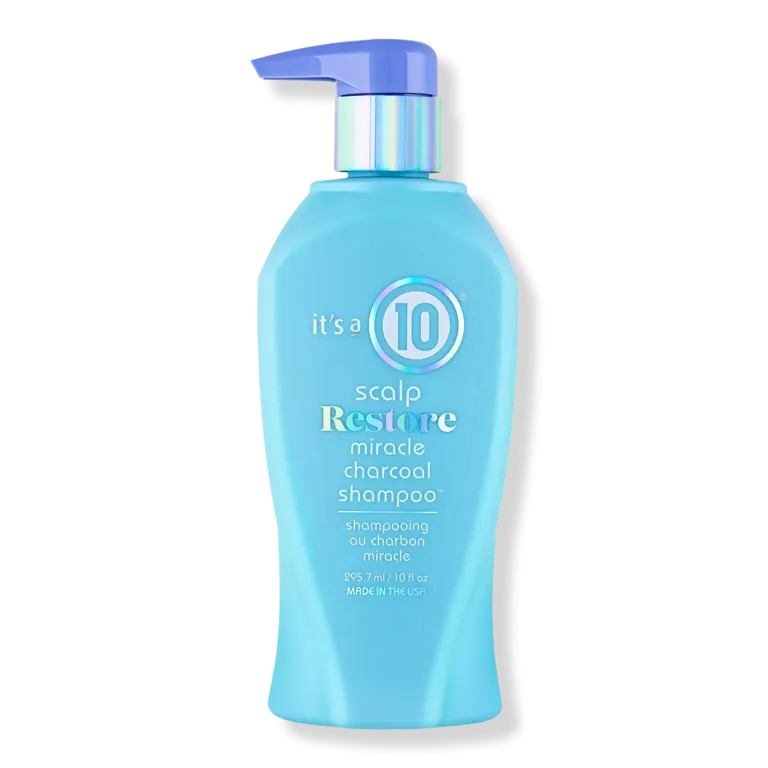
Enriched with kaolin clay, this charcoal shampoo gently lifts irritants and exfoliates the scalp, while simultaneously restoring lost moisture, so you're left feeling extra clean and itch-free. Clinically proven to make hair more resistant to breakage and damage, this biotech-engineered weightless oil works on all hair types to strengthen, repair damage, lessen frizz at two levels of the hair fiber, and even improve shine.
K18 Biomimetic Hairscience Mini Molecular Hair Oil
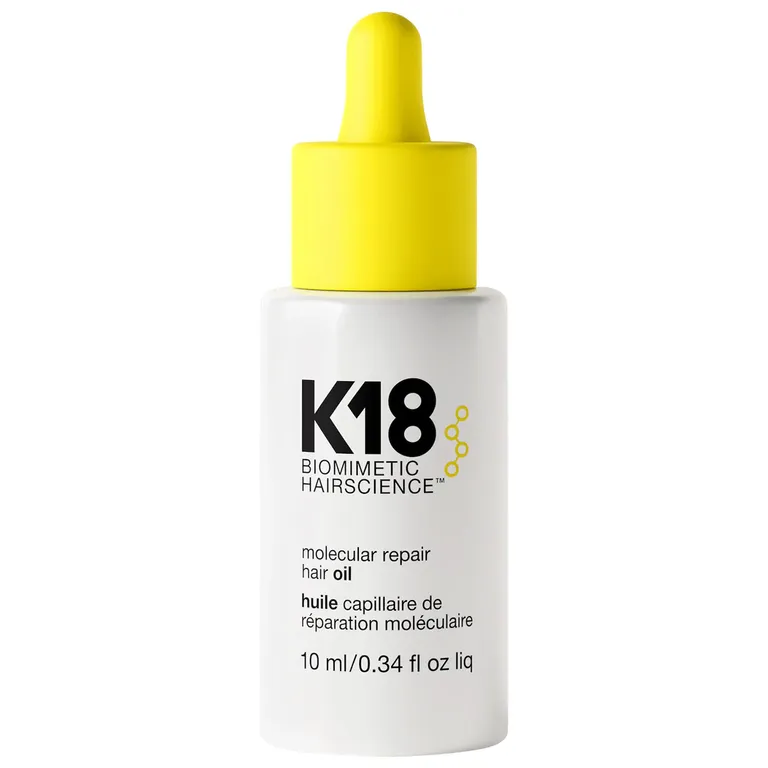
Clinically proven to make hair more resistant to breakage and damage, this biotech-engineered weightless oil works on all hair types to strengthen, repair damage, lessen frizz at two levels of the hair fiber, and even improve shine.
Pattern by Tracee Ellis Ross Palo Santo Leave-in Conditioner
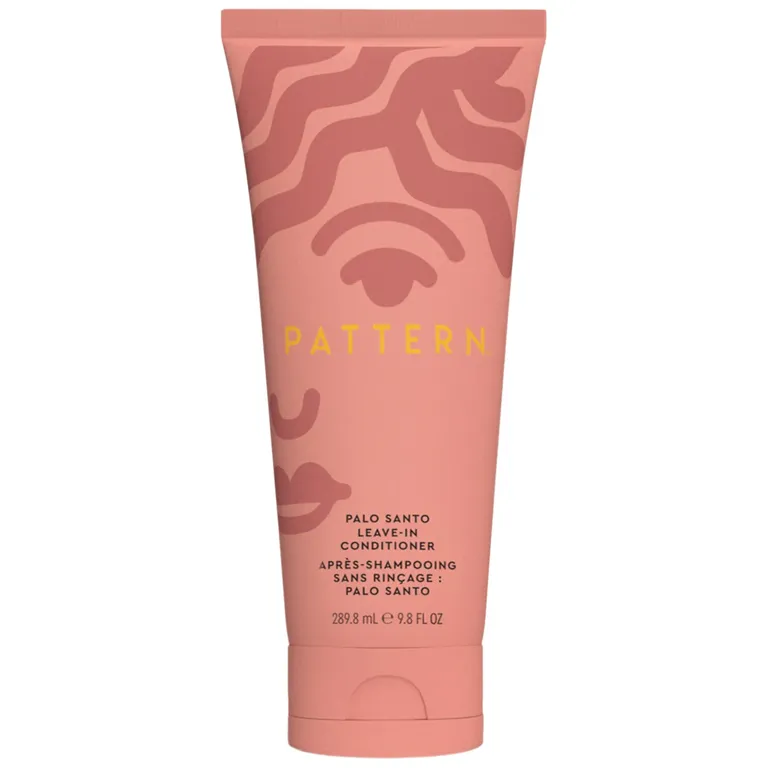
Curly and coily textures will see immediate results after applying this hydrating leave-in conditioner, loaded with jojoba oil, honey and biotin, that seals in moisture, detangles and enhances curl definition, without weighing down the hair.
Mielle Rosemary Mint Scalp & Hair Strengthening Oil
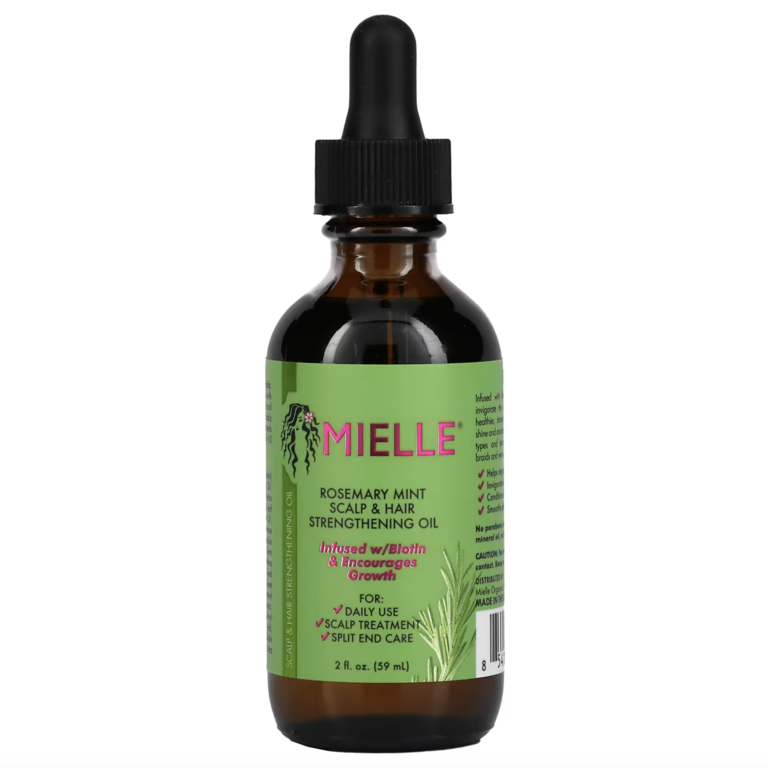
This delicious-smelling oil has gained a cult following, for its nourishing formula, infused with biotin and 30 organic essential oils and extracts, is thick enough to penetrate the cuticle, especially while hair slugging, leaving you with luscious locks.
Hairitage by Mindy McKnight Mask-querade Transforming Hair Mask
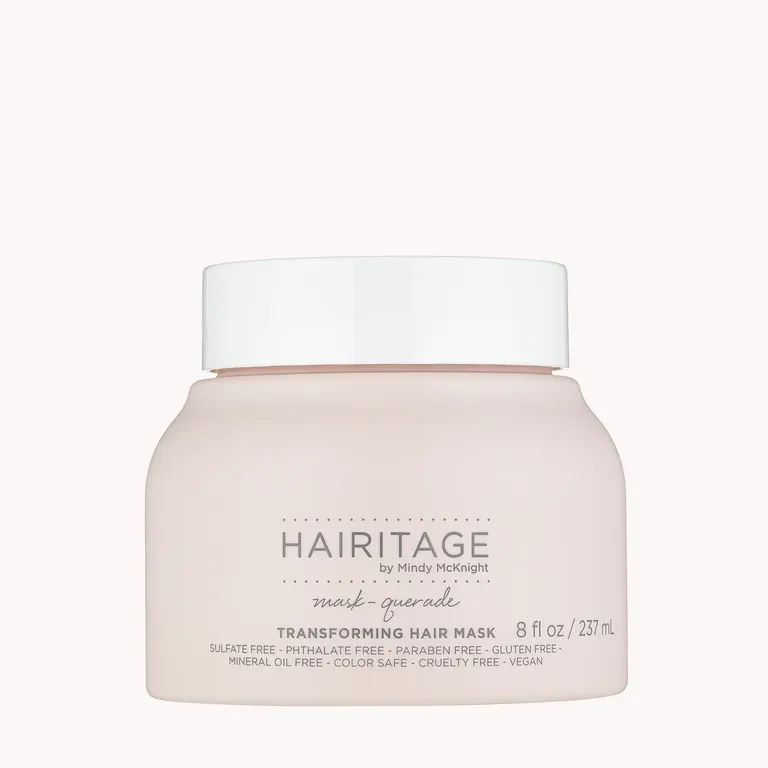
Recommended for all hair types, this 5-in-1 deep conditioning mask contains agave and apple cider vinegar, which work in tandem to quickly to close the hair cuticle and act as a conditioning humectant, to visibly restore and rejuvenate parched tresses.
Canopy Filtered Showerhead
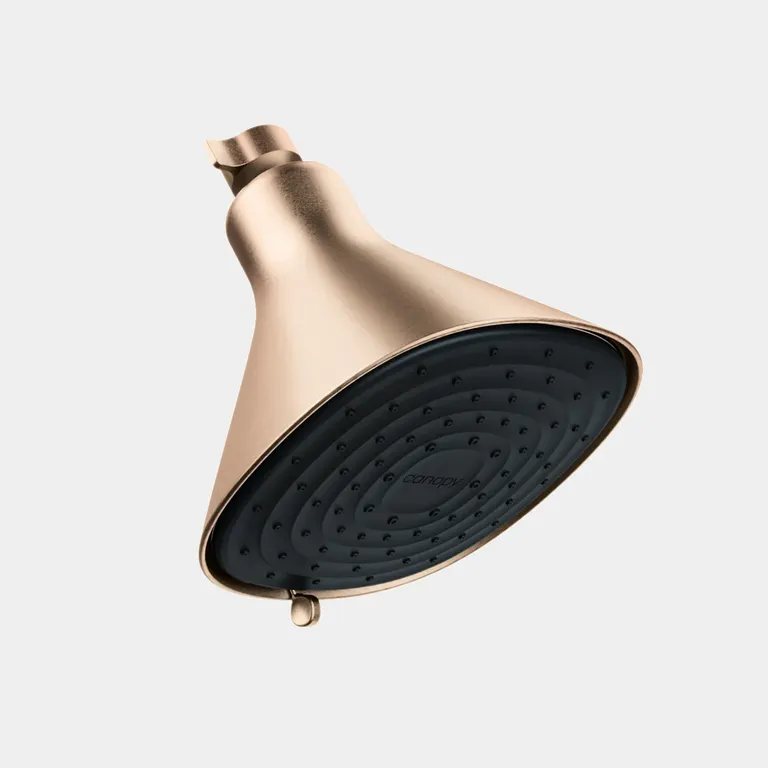
Both easy-to-install and incredibly sleek-looking, this filtered shower head removes dissolved minerals and contaminants in your household water to clear scalp buildup and increase natural hair growth.
Babe Locks Densifying Hair Serum
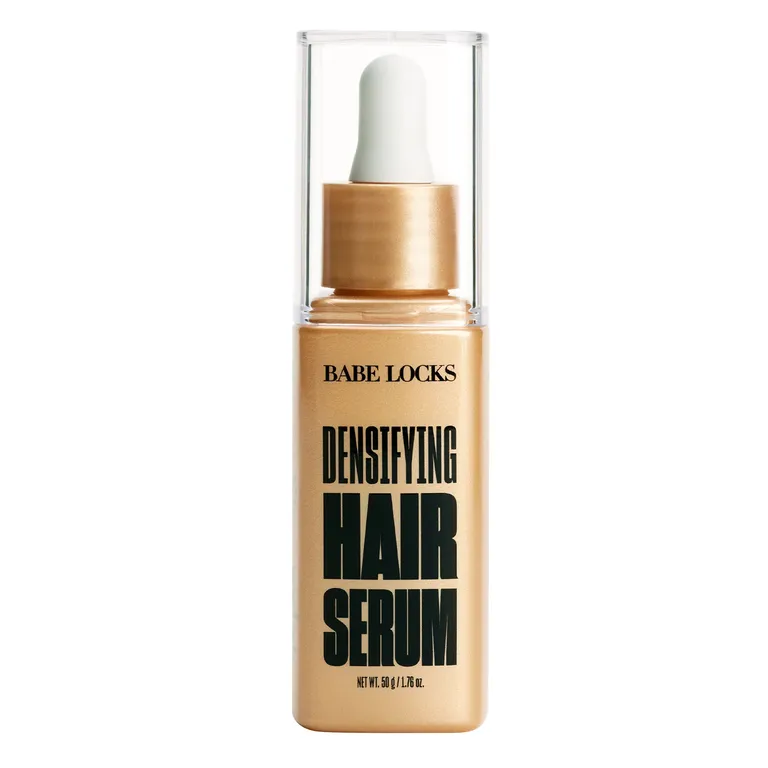
With hundreds of 5-star reviews, you can count on this highly-requested serum to balance the scalp microbiome and replenish follicles, using ceramides and biotin, resulting in fuller-looking hair.
Inala Healthy Start Duo Power Potion + Resent Rinse
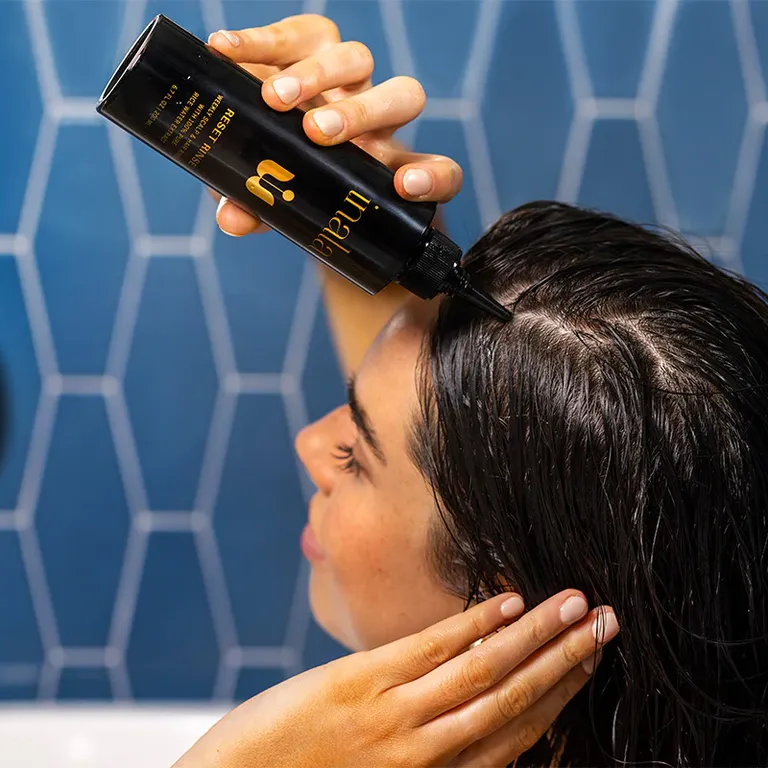
Powered by the brand's Signature Rice Water Complex®, this best-selling dual product contains a daily, detoxifying scalp serum and a weekly scalp and hair treatment that strengthens hair and removes buildup.
Maria Nila Head & Hair Heal Conditioner
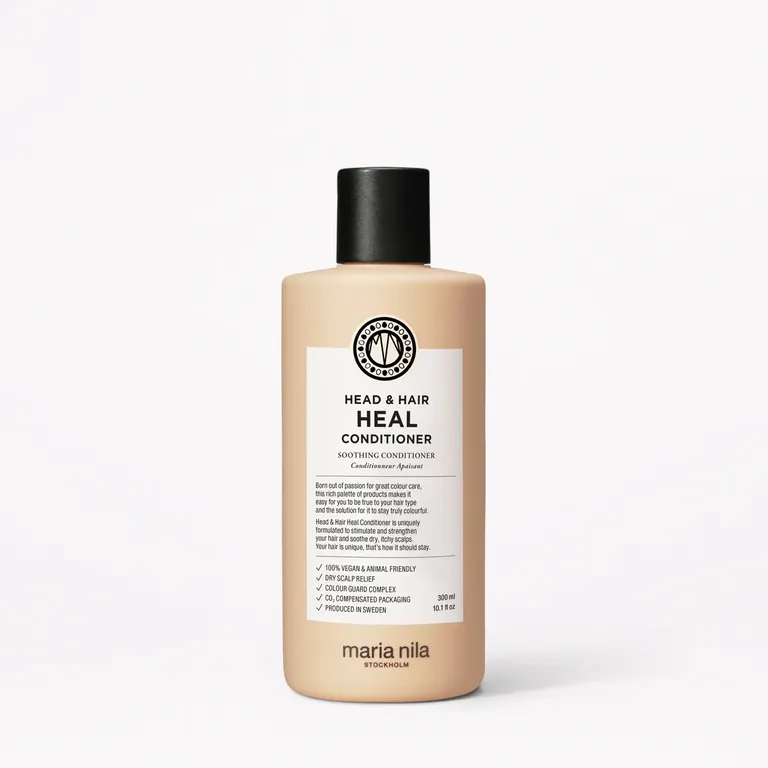
Both anti-inflammatory and hair growth stimulating, this calming conditioner contains natural aloe vera extract, to prevent dandruff, moisturize and heal itchy, irritated scalps.

